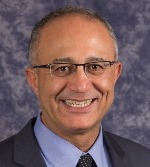The Connected Future Business Culture:
The Great Project Management Accelerator
SERIES ARTICLE
By Dr. Harold Kerzner
Senior Executive for Project Management
The International Institute for Learning (IIL)
New York and Florida, USA
and
Dr. Al Zeitoun, PgMP, PMI Fellow
Global Future of Work Executive
Siemens DISW
Ohio and Maryland USA
Introduction
Modern day project management has existed for almost 60 years. There have been several changes that have taken place during this time, but perhaps none as important as the acceptance and use of Portfolio Project Management (PPM) practices.
PPM practices are based upon the type of portfolio. For simplicity’s sake, portfolios can be defined as operational or strategic. With an operational PMO, the PPM team are actively involved with the individual projects, perhaps on a daily basis, and utilize the Earned Value Management System (EVMS) as do the project teams. On strategic projects, the PPM team interface mostly with stakeholders, customers, and senior management, and may require other information systems.
The type of portfolio determines the size of the portfolio and the decisions to be made. This then determines the actors that are involved in the collaboration process. The most critical business decisions reside within the strategic portfolio, and the intent of this paper is to address these strategic decisions while keeping in mind the ways of working and the experience of affected key stakeholders.
Experience Focused PPM
Some people seem confused as to what PPM means. PPM is NOT the same as the management of individual projects and programs. Rather, the focus is on managing the RIGHT set of projects necessary to support strategic goals and objectives as well as the expected business benefits and business value. There are generally three critical tasks for PPM:
- To make sure that we are managing the right projects and the right number of projects in the portfolio
- To make sure that the portfolio is composed of the right types and mix of projects
- To make sure that all the projects are aligned to strategic goals and objectives
Most strategic portfolios do not contain all of the projects. There usually exists a prioritization process which limits the size of the portfolio. To perform these three critical tasks, the personnel assigned with the PPM responsibility must rely heavily upon their collaboration and decision-making skills.
PPM teams do not make decisions in isolation. The strategic importance of the projects within the portfolio and the decisions to be made require that the PPM team have access to all levels of the organization as well as stakeholders. The decision-making process is challenging and complex because each of the actors have their own special interests that may conflict with company interests. The ability to make meaningful and timely decisions is difficult because most companies do not have the correct decision-making tools necessary. The EVMS does not provide the critical information that most PPM teams need for strategic decisions.
Impact of Innovation on Decision-Making
Strategic PPM is often regarded as the collaborative process by which organizations manage innovation. Innovation drives the decisions necessary to manage the three critical PPM activities mentioned previously. All of the actors and stakeholders understand the need for innovation and as expected, may have hidden agendas where they believe that their innovation needs should be given the highest priority. The need for innovation can result in removing some projects from the portfolio and inserting new ones. This forces the PPM team to live with constantly changing information.
The PPM team must manage information from the top of the organization down to the bottom, and back up again. This also requires providing stakeholders the necessary information regarding how innovation can impact the decisions they must make now and possibly in the future.
The PPM team acts as the guardian of the critical information necessary for composition or redesign of the portfolio. The PPM team may not participate in selection of new projects or the prioritization process. The PPM team serves as the collaborative link providing the necessary information to all key actors.
More…
To read entire paper, click here
How to cite this paper: Kerzner, H. and Zeitoun, A. (2022). The Experience Focused Portfolio Decision-Making: The Great Project Management Accelerator, series article, PM World Journal, Vol. XI, Issue IX, September. Available online at https://pmworldlibrary.net/wp-content/uploads/2022/09/pmwj121-Sep2022-Kerzner-Zeitoun-Experienced-Focused-Portfolio-Decision-Making-series-5-2.pdf
About the Authors

Harold Kerzner, Ph.D., MS, M.B.A
Senior Executive Director for Project Management
International Institute of Learning
New York & Florida, USA
![]()
Dr. Harold Kerzner is Senior Executive Director for Project Management for the International Institute for Learning (IIL). He has an MS and Ph.D. in Aeronautical and Astronautical Engineering from the University of Illinois and an MBA from Utah State University. He is a prior Air Force Officer and spent several years at Morton-Thiokol in project management. He taught engineering at the University of Illinois and business administration at Utah State University, and for 38 years taught project management at Baldwin-Wallace University. He has published or presented numerous engineering and business papers and has had published more than 60 college textbooks/workbooks on project management, including later editions. Some of his books are (1) Project Management: A Systems Approach to Planning, Scheduling and Controlling; (2) Project Management Metrics, KPIs and Dashboards, (3) Project Management Case Studies, (4) Project Management Best Practices: Achieving Global Excellence, (5) PM 2.0: The Future of Project Management, (6) Using the Project Management Maturity Model, and (7) Innovation Project Management.
He is a charter member of the Northeast Ohio PMI Chapter.
Dr. Kerzner has traveled around the world conducting project management lectures for PMI Chapters and companies in Japan, China, Russia, Brazil, Singapore, Korea, South Africa, Canada, Ireland, Germany, Spain, Belgium, Poland, Croatia, Mexico, Trinidad, Barbados, The Netherlands, Sweden, Finland, Venezuela, Columbia, United Arab Emirates, France, Italy, England, and Switzerland. He delivered a keynote speech at a PMI Global Congress on the future of project management.
His recognitions include:
- The University of Illinois granted Dr. Kerzner a Distinguished Recent Alumni Award in 1981 for his contributions to the field of project management.
- Utah State University provided Dr. Kerzner with the 1998 Distinguished Service Award for his contributions to the field of project management.
- The Northeast Ohio Chapter of the Project Management Institute gives out the Kerzner Award once a year to one project manager in Northeast Ohio that has demonstrated excellence in project management. They also give out a second Kerzner Award for project of the year in Northeast Ohio.
- The Project Management Institute (National Organization) in cooperation with IIL has initiated the Kerzner International Project Manager of the Year Award given to one project manager yearly anywhere in the world that demonstrated excellence in project management.
- The Project Management Institute also gives out four scholarships each year in Dr. Kerzner’s name for graduate studies in project management.
- Baldwin-Wallace University has instituted the Kerzner Distinguished Lecturer Series in project management.
- The Italian Institute of Project Management presented Dr. Kerzner with the 2019 International ISIPM Award for his contributions to the field of project management.
Dr. Harold Kerzner can be contacted at hkerzner@hotmail.com

Dr. Al Zeitoun, PgMP, PMI Fellow
Global Future of Work Executive
Siemens DISW
Ohio & Maryland USA
![]()
Dr. Al Zeitoun is a Future of Work, business optimization, and operational performance excellence thought leader with global experiences in strategy execution. His experiences encompass leading organizations; delivering their Enterprise Digital and Business Transformation; guiding fitting frameworks implementations; and using his empathy, engineering insights, and collaboration strengths to successfully envision new business models and execute complex missions across diverse cultures globally.
In his current role with Siemens, he is a Senior Director of Strategy responsible for driving the global program management practices, Master Plan governance, and enabling the Strategy Transformation processes and priorities.
In his position, as the Executive Director for Emirates Nuclear Energy Corporation, Abu Dhabi, UAE, he was responsible for creating the strategy execution framework, achieving transformation benefits, governance excellence, and creating the data analytics discipline necessary for delivering on the $40B complex country energy mission roadmap.
At the McLean, USA HQ of Booz Allen Hamilton, Dr. Zeitoun strategically envisioned and customized digitally enabled EPMO advisory, mapped playbooks, and capability development for clients’ Billions of Dollars strategic initiatives. Furthermore, he led the firm’s Middle East North Africa Portfolio Management and Agile Governance Solutions.
With the International Institute of Learning, Dr. Zeitoun played a senior leader and global trainer and coach. He was instrumental in driving its global expansions, thought leadership, and operational excellence methodology to sense and shape dynamic ways of working across organizations worldwide. He speaks English, Arabic, and German and enjoys good food, travel, and volunteering. Dr. Al Zeitoun can be contacted at zeitounstrategy@gmail.com









